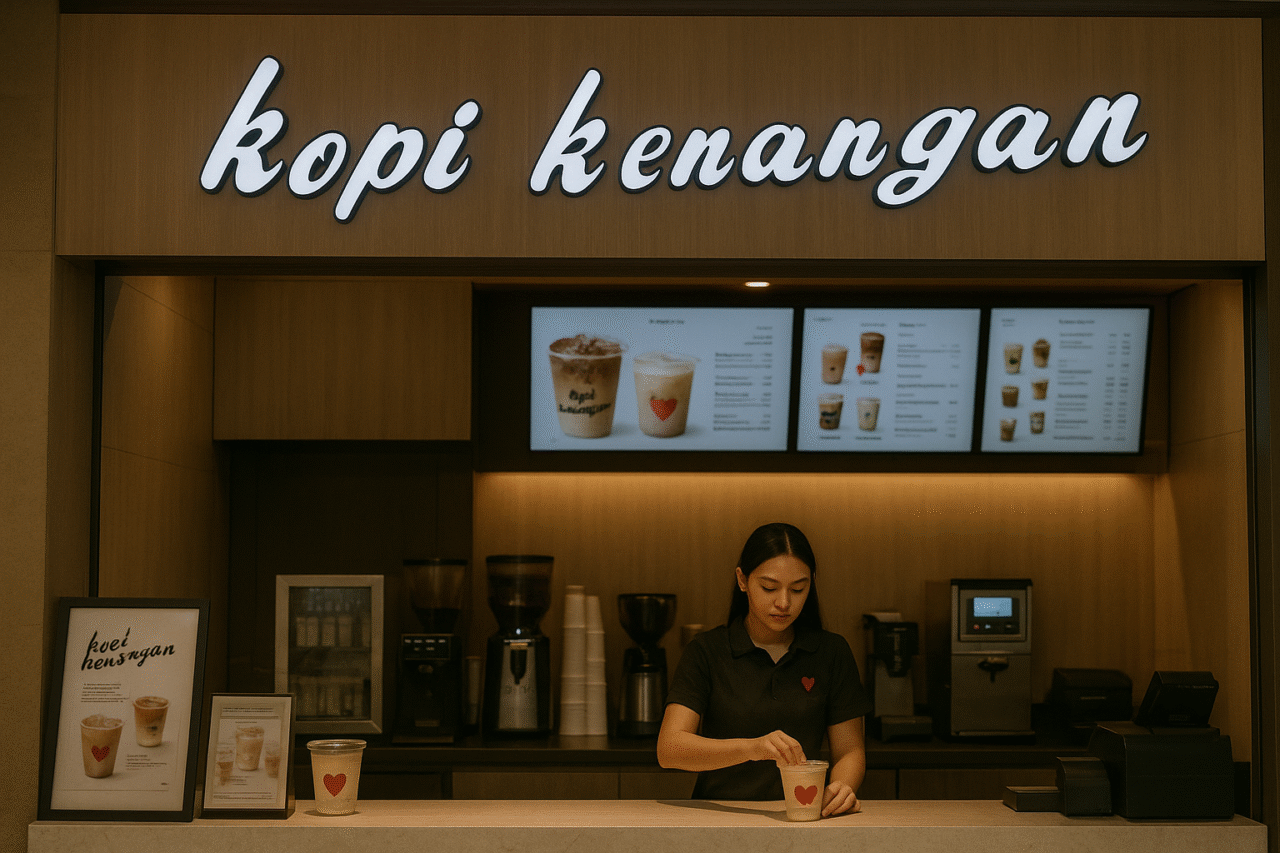In Jakarta’s buzzing streets, 2017, two friends stood at a coffee counter with a shared idea and just $15,000 to their name. “Let’s not invest in fancy storefronts,” said Edward Tirtanata to James Prananto. “Let’s invest in the product.” That moment of clarity gave birth to Kopi Kenangan — a name meaning “Coffee of Memories” — and launched what would become one of Southeast Asia’s most remarkable startup stories.
Today, Kopi Kenangan is no longer just a kiosk. It’s a billion-dollar coffee empire, a lifestyle brand, and a symbol of Indonesia’s thriving entrepreneurial spirit.
A Disruptive Beginning
Tirtanata was no stranger to business or failure. His first venture, a tea chain named Lewis & Carroll, didn’t survive. But it taught him one thing: success lies in timing, product-market fit, and pricing.
The idea behind Kopi Kenangan was born out of necessity and insight. In Indonesia, global coffee chains like Starbucks were out of reach for many — with a single cup costing nearly 30% of a day’s average income. Edward and James saw an opportunity to bridge that gap: provide affordable, high-quality, locally inspired coffee through small, efficient kiosks.
And so, the first Kopi Kenangan opened — built on hustle, instinct, and the belief that great coffee shouldn’t break the bank.
Smart Model, Fast Growth
The brand’s growth came from a meticulously designed model centered around three pillars:
Grab-and-Go: Quick, no-frills service for mobile urbanites.
Tech-First Approach: Cashless payments, loyalty points, and mobile ordering via a dedicated app.
Local Flavors with Global Quality: From Kenangan Latte with palm sugar to Avocado Kopi, the menu balances nostalgia with novelty.
Strategic pricing was key. The bestselling drink — palm sugar iced coffee — is priced at just 22,000 rupiah ($1.40), roughly half the cost of a similar drink at international chains. Combined with low rental costs, this allowed fast expansion without sacrificing profitability.
By 2023, Kopi Kenangan had more than 800 outlets across Indonesia. By 2024, it had surpassed 1,000 outlets in over 60 cities.
Becoming a Unicorn
In 2021, the company officially reached unicorn status — surpassing a $1 billion valuation — after a $239 million Series C funding round led by Sequoia Capital India, Alpha JWC Ventures, and Horizons Ventures.
Sales skyrocketed to over 6 million cups per month, generating $140 million in revenue in 2024, up 23% from the previous year. Forecasts suggest that revenue could triple to $430 million by 2028.
A Regional Giant in the Making
Kopi Kenangan has also gone global. The brand expanded into Malaysia, Singapore, and the Philippines, with future plans for Thailand. Each market receives tailored flavor profiles based on local preferences — an approach that balances consistency with cultural nuance.
For example, Singapore’s branch offerings differ in sweetness and roast intensity compared to their Indonesian counterparts, based on consumer data gathered before launching.
Rumors swirl about a potential IPO, though the company remains tight-lipped. What’s clear is the ambition: 3,000 outlets by 2028, and recognition as Southeast Asia’s most beloved coffee brand.
Digital, Sustainable, and Culturally Sharp
The brand excels not only in coffee but also in digital strategy and marketing. Sleek, Instagrammable stores, influencer campaigns, and a highly active social media presence have fueled viral growth — especially among millennials and Gen Z.
On the sustainability front, Kopi Kenangan is transitioning to recyclable packaging and reducing plastic usage. It also prioritizes sourcing local ingredients, ensuring both freshness and economic contribution to local communities.
Facing Giants, Staying Grounded
In a competitive landscape that includes global players like Starbucks and % Arabica, as well as local upstarts like Fore Coffee and Janji Jiwa, Kopi Kenangan has carved out a unique niche — between premium and street-level, modern and traditional.
Challenges lie ahead: maintaining quality amid rapid expansion, adapting to diverse markets, and navigating rising expectations. But the brand’s philosophy — value, taste, and emotional connection — remains its guiding compass.
Brewing More Than Coffee
Edward Tirtanata’s story is a lesson in resilience, agility, and understanding your customer. Failure didn’t define him — it refined him. Today, Kopi Kenangan is more than a coffee chain. It’s a memory-maker, a disruptor, and proof that in even the most saturated markets, there’s always room for innovation.
“If you serve a better cup at a better price, people will come,” Edward once said. “That’s where memories begin.”
From Jakarta’s sidewalks to Southeast Asia’s cities, Kopi Kenangan isn’t just serving coffee — it’s brewing a movement.
